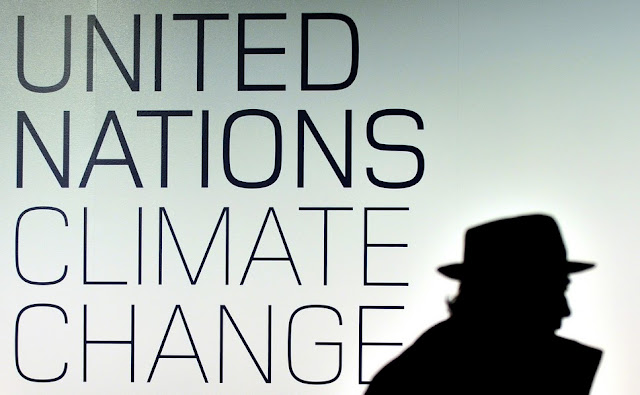For the past week, as part of the
Adopt a Negotiator program, I got the chance to observe many of the negotiations of the latest
UN Framework Convention on Climate Change (UNFCCC) intersessional meeting that took place in Tianjin, China. In many ways it was rather humdrum. I observed as negotiators debated changing agendas and the mandate of contact groups rather than the issues themselves, and made many of the same, tired position speeches again and gain.
When controversial issues did rise to the fore, they felt like more of the same old, same old: arguments between China and the United States about who is doing more to stall the talks and who should make legally binding emissions cuts; developed countries carving enormous loopholes into the LULUCF; the greenhouse gas inventory sector covering emissions and removals of greenhouse gases resulting from land use. But the dry nature of the talks concealed the more important truth – that the negotiators are not just discussing acronyms, but human lives, which could be catastrophically altered due to the effects of climate change.
The Adopt a Negotiator program is supported by the Global Campaign for Climate Action, a group of young people from countries around the world who come to the UNFCCC meetings to track the delegations from their own countries and share what is happening at the negotiations through social networking tools (be sure to check out our blogs).
If the UN climate talks fail, and if countries cannot muster the political will to make substantial economy-wide changes and greenhouse gas emissions continue unabated, the results for the poorest and most vulnerable people on the planet will be catastrophic.
Last week was the first time that I have ever experienced any kind of UN negotiation first hand, and some of what I saw was incredibly depressing. Mitigation efforts are especially in danger, as disagreements primarily between the United States and China about who should agree to emissions cuts and international reporting and verification requirements sharpened and intensified.
But there were many bright spots as well. Negotiators are very close to making the final decisions about an international architecture for technology transfer to help the most vulnerable and poorest countries adapt to the effects of climate change and mitigate greenhouse gas emissions. They also spent the week narrowing and refining draft text with regards to climate finance and an international architecture to disburse “Green Funds,” and hopefully will be able to make final decisions at COP-16 in Cancun this November 29th through December 10th. These steps are small examples of potential good news for the people who will suffer, and are most likely already suffering, from climate change’s global impacts.
Unfortunately, negotiators are already in agreement that the only bright spots that we are likely to see at COP-16 are small items such as these. Almost no one believes that there is any chance that countries will agree on a final, legally binding text to reduce carbon emissions, and negotiators have instead pushed off this decision until the next Conference of the Parties (COP) in South Africa in 2011. Instead, the near-universal buzz at the conference was about a “balanced package.” Although the phrase in reality means something slightly different to everyone who uses it, it is generally understood to refer to a set of decisions on issues like climate finance, technology transfer, initiatives to cut back on deforestation, and putting some of the decisions made under the Copenhagen Accord into legally binding text, like “fast start” finance measures to the developing world.
In many ways the Tianjin session was itself a “balanced package” – a set of interactions and experiences that was both deeply discouraging and incredibly uplifting. One of the personally uplifting moments for me was having the honor of delivering a short intervention on the first day of the opening plenary on behalf of youth NGOs around the world (known as YOUNGOs). In the words I read, which had been drafted by a group of Chinese youth, all the particulars of policy were stripped away and the only thing that remained was the frustration – and also the hopes – of young people around the world (those who will actually experience the effects of climate change well within their lifetimes if UNFCCC negotiators don’t work harder to reach a consensus).
Through the disappointments of Copenhagen to the slow-moving intersessionals throughout this year, many pundits have cynically declared the UNFCCC process dead. This is certainly not the case. But if they are truly serious about saving the planet from climate change’s most serious impacts, negotiators will certainly have to work harder in Cancun.
Alex Stark is a Program Assistant at the Friends Committee on National Legislation, working on the Peaceful Prevention of Deadly Conflict Program. She attended the Tianjin negotiations as part of the Adopt a Negotiator team.
Photo Credit: Adapted from “COP11_lo,” courtesy of Neil Palmer and flickr user CIAT – International Center for Tropical Agricultu.

 A Publication of the Stimson Center.
A Publication of the Stimson Center.



